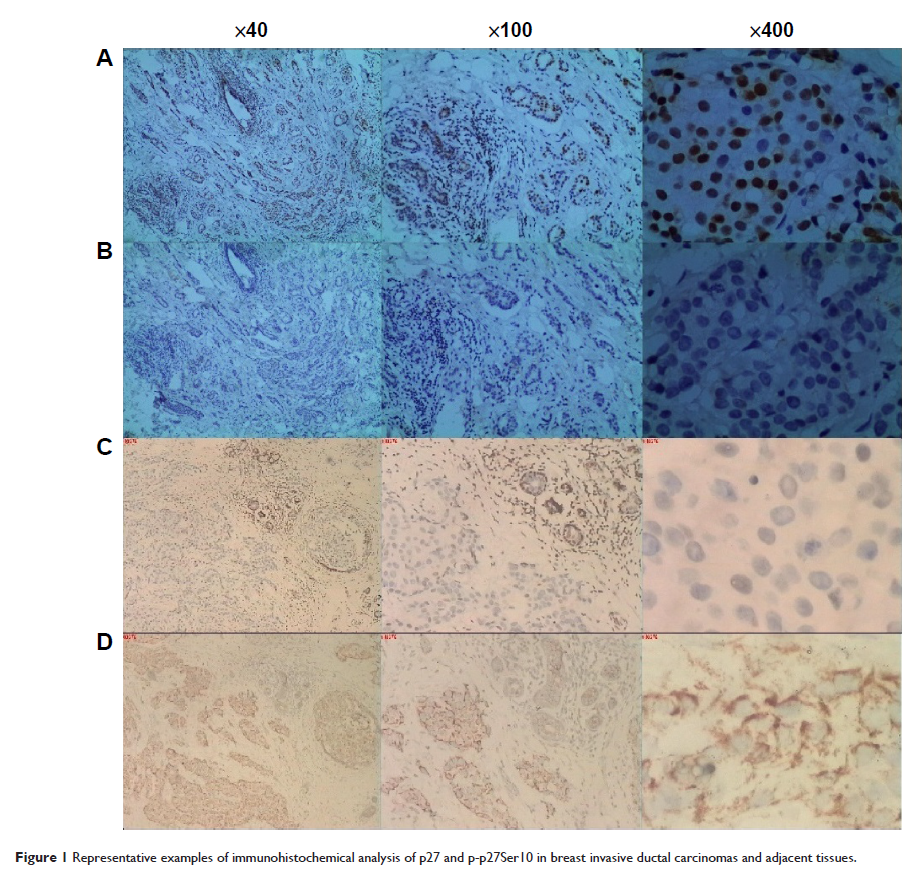109669
论文已发表
注册即可获取德孚的最新动态
IF 收录期刊
- 3.4 Breast Cancer (Dove Med Press)
- 3.2 Clin Epidemiol
- 2.6 Cancer Manag Res
- 2.9 Infect Drug Resist
- 3.7 Clin Interv Aging
- 5.1 Drug Des Dev Ther
- 3.1 Int J Chronic Obstr
- 6.6 Int J Nanomed
- 2.6 Int J Women's Health
- 2.9 Neuropsych Dis Treat
- 2.8 OncoTargets Ther
- 2.0 Patient Prefer Adher
- 2.2 Ther Clin Risk Manag
- 2.5 J Pain Res
- 3.0 Diabet Metab Synd Ob
- 3.2 Psychol Res Behav Ma
- 3.4 Nat Sci Sleep
- 1.8 Pharmgenomics Pers Med
- 2.0 Risk Manag Healthc Policy
- 4.1 J Inflamm Res
- 2.0 Int J Gen Med
- 3.4 J Hepatocell Carcinoma
- 3.0 J Asthma Allergy
- 2.2 Clin Cosmet Investig Dermatol
- 2.4 J Multidiscip Healthc

p27Kip1 及磷酸化 p27Kip1 (Ser10)在乳腺癌中:临床意义和表达
Authors Song W, Xie RL, Zhu AY, Xu YM, Shi YQ, Shen Y, Zhang WW, Yang F, Guan XX
Published Date July 2015 Volume 2015:8 Pages 1863—1869
DOI http://dx.doi.org/10.2147/OTT.S85866
Received 1 April 2015, Accepted 20 May 2015, Published 24 July 2015
Approved for publication by Professor Daniele Santini
Methods: We examined the expression of p27 and p-p27Ser10 using immunohistochemistry in 107 breast invasive ductal carcinomas and analyzed the relationship of these biomarkers and tumor characteristics.
Results: Of the 107 tumor samples, 38.3% (41 of 107) overexpressed p27 and 64.5% (69 of 107) overexpressed p-p27Ser10. Analysis of correlation with clinical characteristics showed that high expression level of p-p27Ser10 was linked to poor differentiation, advanced disease stage, and lymph node metastasis, whereas a contrary trend was observed for p27 (all P <0.05). In addition, the expression of p-p27Ser10 was significantly higher in malignant tumors than in adjacent tissues, while p27 showed the opposite trend. Also, there were different levels of p27 and p-p27Ser10 in different types of breast cancer.
Conclusion: p27 and p-p27Ser10 are involved in the development of invasive ductal carcinoma and are potential indicators to judge the degree of malignancy as well as recurrence and metastasis.
Keywords: breast cancer, p27, p-p27Ser10, Ki67, ERα, PR, Her2
